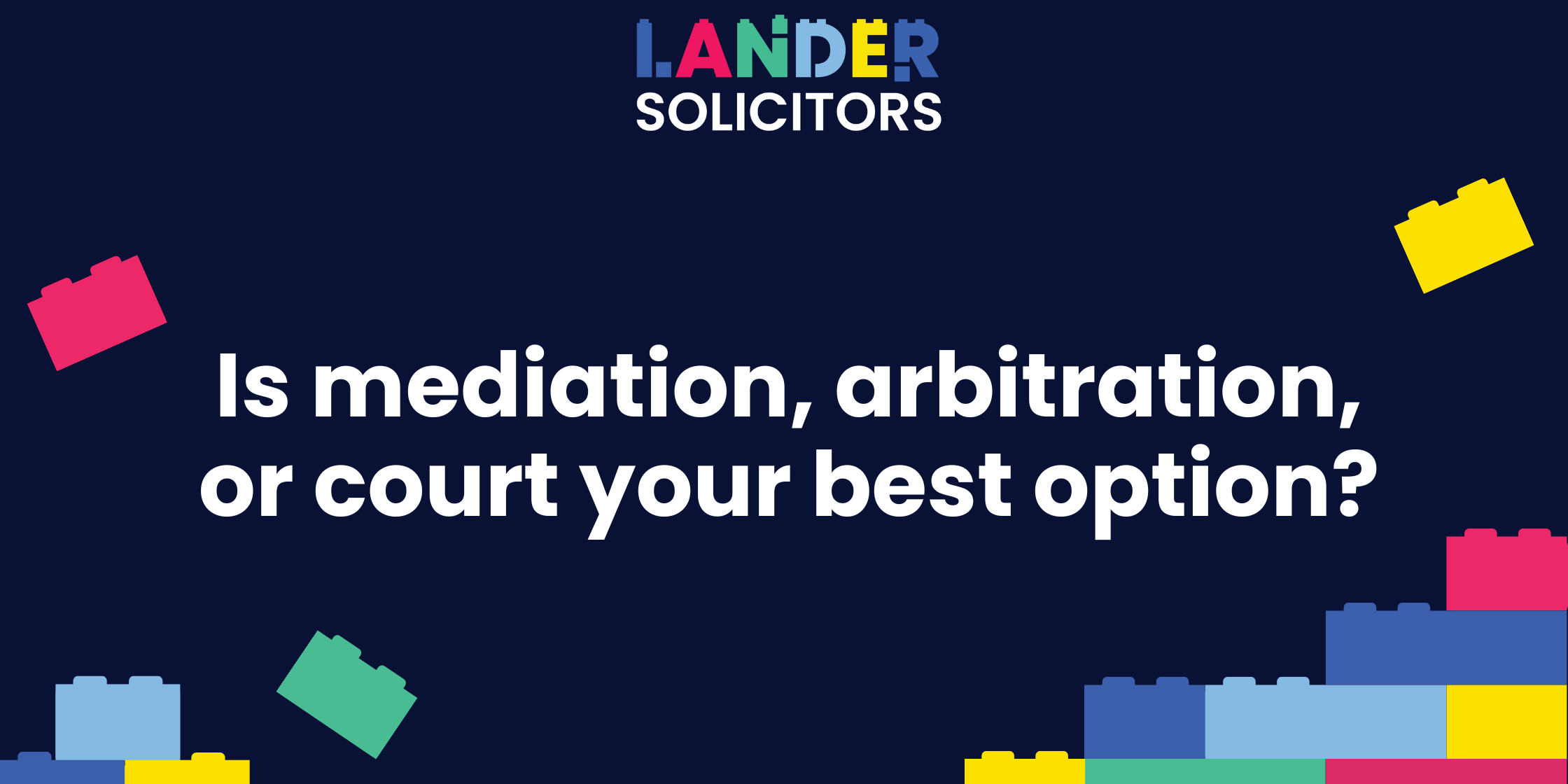Navigating family law disputes can feel overwhelming, especially when you’re faced with choices like mediation, arbitration, and court proceedings. Each option has its own set of benefits and understanding them can help you make the best decision for your family’s future.
Mediation vs arbitration vs court
Mediation: collaboratively working towards a solution
Mediation is a confidential, informal process where a neutral facilitator (like our accredited Family Dispute Resolution Practitioner, Andrew Lander) helps both parties work toward a mutually agreeable solution. It’s less about winning and more about working together to find solutions that everyone can live with.
Pros:
- Encourages open dialogue and cooperation.
- Private and less confrontational than court.
- You have control over the outcome.
- Generally quicker, less expensive, and far more emotionally sustainable than going to court.
- Explore issues identified by both parties and options to facilitate a win-win solution where possible.
Cons:
- Requires both parties to be willing to negotiate.
- Not ideal for situations with serious conflict or power imbalances.
Best for:
Parents who want to keep things amicable, preserve long-term relationships (especially when co-parenting is involved), and stay out of court.
Arbitration: a private decision maker
Arbitration is like hiring a private judge. It’s more formal than mediation, but still outside the court system. Both parties present their case, and the arbitrator makes a legally binding decision.
Pros:
- Faster than court.
- Confidential and private.
- The decision is binding, providing closure.
Cons:
- Less flexible than mediation.
- Can be more costly than mediation.
- Limited options for appeal.
Best for:
When you need a binding decision but want to avoid the public nature of court proceedings.
Court: the traditional route
Court is the most formal, rigid, and adversarial option; often, the most emotionally and financially draining, too. A judge will apply the law to your case and make a ruling. It’s the route most people think of first, and while necessary in some matters, it’s generally a pathway we try to help families avoid if possible.
Pros:
- Provides a clear legal resolution.
- Suitable for complex or contentious cases.
Cons:
- Time-consuming and expensive.
- Public and adversarial.
- You have less control over the outcome.
Best for:
When legal intervention is necessary, such as cases involving serious domestic violence or urgent legal matters.
Why we lead with mediation at Lander Solicitors Queensland
When it’s safe and appropriate, mediation should be your starting point. With the support of our experienced team and guided by Andrew Lander, we help families reach practical, respectful agreements.
However, we also offer litigation services too. Whether you’re considering mediation or court, we’re here to guide you to the right avenue and the rest of the process with compassion and expertise.
Mediation Brisbane: ready to find your path?
Feeling unsure about which option is right for you? Contact Lander Solicitors Queensland today to discuss your situation and explore the best path forward for your family.
DISCLAIMER – The information provided in this blog is general and does not consider your individual legal needs or objectives. It does not constitute personal advice and is for informational purposes only. We recommend seeking out professional and independent legal advice from qualified Australian lawyer to advise on your individual situation before acting on any information contained below. Lander Solicitors Queensland accepts no express or implied liability for negligence or contractually for reliance on any information provided. Liability limited by a scheme approved under Professional Standards Legislation.







